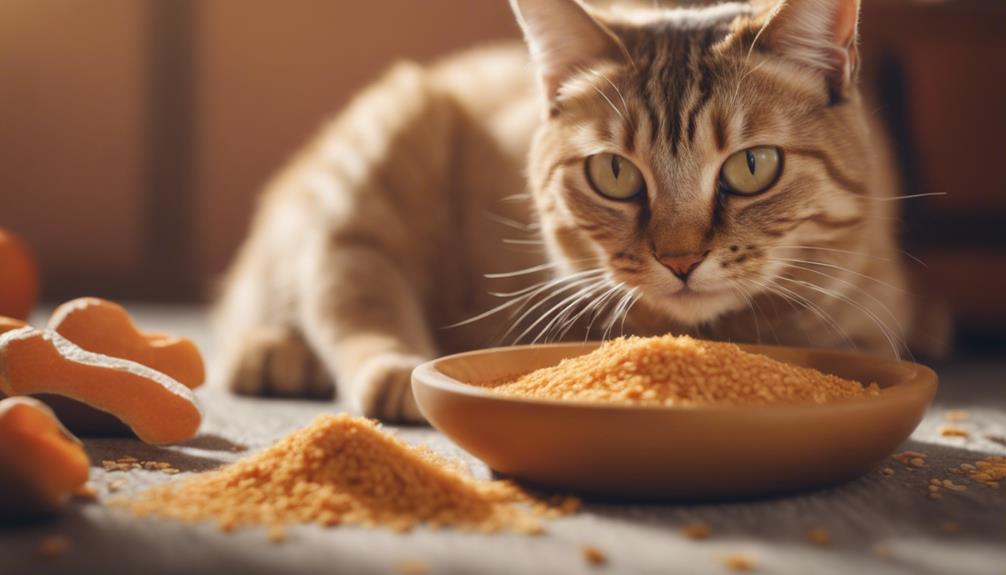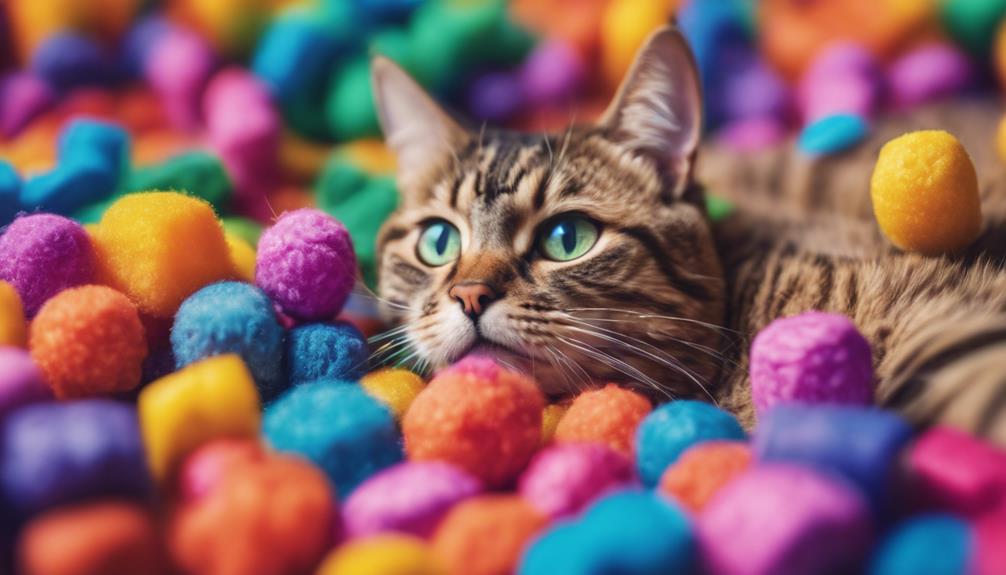In the intricate realm of feline nutrition, the utilization of fiber supplements stands as a crucial component in addressing a spectrum of health issues that cats may confront. While a well-rounded diet typically suffices for the upkeep of healthy cats, certain conditions necessitate the incorporation of fiber supplements to maintain digestive health.
Striking the right balance is paramount, as excessive fiber intake could potentially trigger gastrointestinal disturbances. Understanding the role of fiber sources in cat diets, from natural prey-based options to plant-derived elements in commercial foods, is key to optimizing feline well-being.
This article offers insights into the significance of fiber for cats, explores varied dietary fiber sources, elaborates on the benefits for digestive concerns, and presents a select list of top-rated fiber supplements tailored to cater to distinct feline health requirements.
Key Takeaways
- Fiber supplements benefit cats with digestive issues like constipation, diarrhea, and anal gland disorders.
- Excessive fiber can cause GI problems, so monitor for stool changes or discomfort.
- Cats derive fiber from meat-based diets or commercial foods with plant fiber sources.
- Top-rated fiber supplements include options for GI health, probiotics, and hairball relief.
Importance of Fiber for Cats
Why is fiber crucial for the well-being of cats, especially in certain health conditions or dietary situations?
Fiber plays a vital role in maintaining a cat's digestive health and overall well-being. For cats facing issues like constipation, anal gland disorders, inflammatory bowel disease (IBD), or hypercalcemia, fiber supplements can offer significant benefits.
Additionally, fiber aids in weight management by promoting satiety with fewer calories, making it particularly useful for overweight cats. However, it's essential to strike a balance, as excessive fiber intake can lead to gastrointestinal disturbances and hinder nutrient absorption.
Monitoring your cat's fiber intake is crucial to ensure they receive the right amount for optimal health.
Sources of Fiber for Cats
Deriving essential nutrients from meat-based proteins, cats have specific sources of fiber in their diets that play a crucial role in their overall health. While cats are obligate carnivores, prey-based diets offer fiber substitutes like fur, sinew, cartilage, and chitin.
Commercial cat foods commonly incorporate plant fiber sources such as pumpkin, sweet potato, guar gum, brown rice, and carrots to provide both soluble and insoluble fiber. Soluble fiber forms a gel, aiding in constipation and diarrhea relief, while insoluble fiber promotes bowel movements.
These fiber sources support various bodily functions, ensuring optimal digestion and overall well-being for our feline companions.
Benefits of Fiber for Digestive Issues

With the understanding of how fiber sources in cats' diets contribute to their overall health, it is essential to explore the significant benefits that fiber offers in addressing various digestive issues for feline companions.
Soluble fiber, found in many cat foods, forms a gel that aids in relieving constipation and diarrhea. On the other hand, insoluble fiber, which does not dissolve in water, helps alleviate constipation by promoting regular bowel movements.
The combination of soluble and insoluble fiber in cat diets supports good gut bacteria, enhancing digestive health. However, if issues like persistent diarrhea or constipation persist, it is crucial to seek a veterinarian's diagnosis to uncover any underlying causes that may require specific treatment.
Best High-Fiber Cat Food
Considered an optimal choice for feline gastrointestinal health, the Royal Canin Veterinary Diet Gastrointestinal Fiber Response stands out as the best high-fiber cat food on the market.
This balanced prescription diet not only provides essential fibers but also includes Omega-3 fatty acids to support overall gastrointestinal well-being.
Designed by experts in feline nutrition, this cat food aims to promote healthy digestion while meeting your cat's nutritional needs.
The Royal Canin Veterinary Diet Gastrointestinal Fiber Response has received high ratings from cat owners and veterinarians alike, making it a top choice for cats struggling with digestive issues or requiring a higher fiber intake.
Trust in this premium cat food to help your feline companion thrive with optimal fiber support.
Best Fiber Soft Chew Supplement

What makes the Doctors Foster and Smith Probiotic Soft Chews stand out as a top choice for feline fiber supplementation?
These soft chews are formulated by veterinarians, ensuring both effectiveness and safety for your beloved cat.
They contain a blend of prebiotic fiber to support digestive health and beneficial probiotic bacteria to maintain a healthy gut flora balance.
This unique combination not only aids in promoting regular bowel movements but also helps in alleviating digestive issues such as constipation or diarrhea.
The soft texture of the chews makes them easy to administer, ensuring your cat receives the necessary fiber without any hassle.
Trust in Doctors Foster and Smith Probiotic Soft Chews to provide your feline companion with the fiber support they need for optimal well-being.
Specific Details on Top Fiber Supplements
The Royal Canin Veterinary Diet Gastrointestinal Fiber Response stands out as a balanced prescription diet enriched with Omega-3 fatty acids tailored to promote gastrointestinal health in cats. Doctors Foster and Smith Probiotic Soft Chews, developed by veterinarians, contain prebiotic fiber and beneficial probiotic bacteria for digestive support. Glandex offers relief for anal gland issues through a blend of fiber, probiotics, and anti-inflammatories. Here is a comparison of these top fiber supplements:
| Fiber Supplement | Key Features | Suitable For |
|---|---|---|
| Royal Canin Veterinary Diet Gastrointestinal Fiber Response | Balanced prescription diet with Omega-3 fatty acids | Cats with gastrointestinal health needs |
| Doctors Foster and Smith Probiotic Soft Chews | Prebiotic fiber and beneficial probiotic bacteria | Cats needing digestive support |
| Glandex | Fiber, probiotics, and anti-inflammatories | Cats with anal gland issues |
Conclusion
In the intricate tapestry of feline nutrition, fiber supplements weave a thread of digestive health for our beloved cats. Just as a well-crafted quilt provides comfort and warmth, the careful inclusion of fiber sources in their diet can offer relief from gastrointestinal woes.
Like a masterful artist, choose the right fiber supplement tailored to your cat's specific needs, ensuring a harmonious balance for their overall well-being.




